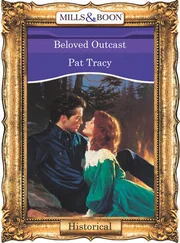All four will go straight to the corn. Halle, who also needs more time now, because of Sethe, decides to bring her and the children at night; not wait till first light. They will go straight to the corn and not assemble at the creek. The corn stretches to their shoulders-it will never be higher. The moon is swelling. They can hardly harvest, or chop, or clear, or pick, or haul for listening for a rattle that is not bird or snake. Then one midmorning, they hear it. Or Halle does and begins to sing it to the others: "Hush, hush. Somebody's calling my name. Hush, hush. Somebody's calling my name. O my Lord, O my Lord, what shall I do?"
On his dinner break he leaves the field. He has to. He has to tell Sethe that he has heard the sign. For two successive nights she has been with Mrs. Garner and he can't chance it that she will not know that this night she cannot be. The Pauls see him go. From underneath Brother's shade where they are chewing corn cake, they see him, swinging along. The bread tastes good. They lick sweat from their lips to give it a saltier flavor. Schoolteacher and his pupils are already at the house eating dinner. Halle swings along. He is not singing now.
Nobody knows what happened. Except for the churn, that was the last anybody ever saw of Halle. What Paul D knew was that Halle disappeared, never told Sethe anything, and was next seen squatting in butter. Maybe when he got to the gate and asked to see Sethe, schoolteacher heard a tint of anxiety in his voice-the tint that would make him pick up his ever-ready shotgun. Maybe Halle made the mistake of saying "my wife" in some way that would put a light in schoolteacher's eye. Sethe says now that she heard shots, but did not look out the window of Mrs. Garner's bedroom. But Halle was not killed or wounded that day because Paul D saw him later, after she had run off with no one's help; after Sixo laughed and his brother disappeared. Saw him greased and flat-eyed as a fish. Maybe schoolteacher shot after him, shot at his feet, to remind him of the trespass.
Maybe Halle got in the barn, hid there and got locked in with the rest of schoolteacher's stock. Maybe anything. He disappeared and everybody was on his own.
Paul A goes back to moving timber after dinner. They are to meet at quarters for supper. He never shows up. Paul D leaves for the creek on time, believing, hoping, Paul A has gone on ahead; certain schoolteacher has learned something. Paul D gets to the creek and it is as dry as Sixo promised. He waits there with the Thirty-Mile Woman for Sixo and Paul A. Only Sixo shows up, his wrists bleeding, his tongue licking his lips like a flame.
"You see Paul A?"
"No."
"Halle?"
"No."
"No sign of them?"
"No sign. Nobody in quarters but the children."
"Sethe?"
"Her children sleep. She must be there still."
"I can't leave without Paul A."
"I can't help you."
"Should I go back and look for them?"
"I can't help you."
"What you think?"
"I think they go straight to the corn."
Sixo turns, then, to the woman and they clutch each other and whisper. She is lit now with some glowing, some shining that comes from inside her. Before when she knelt on creek pebbles with Paul D, she was nothing, a shape in the dark breathing lightly.
Sixo is about to crawl out to look for the knives he buried. He hears something. He hears nothing. Forget the knives. Now. The three of them climb up the bank and schoolteacher, his pupils and four other whitemen move toward them. With lamps. Sixo pushes the Thirty-Mile Woman and she runs further on in the creekbed.
Paul D and Sixo run the other way toward the woods. Both are surrounded and tied.
The air gets sweet then. Perfumed by the things honeybees love.
Tied like a mule, Paul D feels how dewy and inviting the grass is.
He is thinking about that and where Paul A might be when Sixo turns and grabs the mouth of the nearest pointing rifle. He begins to sing. Two others shove Paul D and tie him to a tree. Schoolteacher is saying, "Alive. Alive. I want him alive." Sixo swings and cracks the ribs of one, but with bound hands cannot get the weapon in position to use it in any other way. All the whitemen have to do is wait. For his song, perhaps, to end? Five guns are trained on him while they listen. Paul D cannot see them when they step away from lamplight. Finally one of them hits Sixo in the head with his rifle, and when he comes to, a hickory fire is in front of him and he is tied at the waist to a tree. Schoolteacher has changed his mind: "This one will never be suitable." The song must have convinced him.
The fire keeps failing and the whitemen are put out with themselves at not being prepared for this emergency. They came to capture, not kill. What they can manage is only enough for cooking hominy.
Dry faggots are scarce and the grass is slick with dew.
By the light of the hominy fire Sixo straightens. He is through with his song. He laughs. A rippling sound like Sethe's sons make when they tumble in hay or splash in rainwater. His feet are cooking; the cloth of his trousers smokes. He laughs. Something is funny. Paul D guesses what it is when Sixo interrupts his laughter to call out, "Seven-O! Seven-O!"
Smoky, stubborn fire. They shoot him to shut him up. Have to.
Shackled, walking through the perfumed things honeybees love, Paul D hears the men talking and for the first time learns his worth.
He has always known, or believed he did, his value-as a hand, a laborer who could make profit on a farm-but now he discovers his worth, which is to say he learns his price. The dollar value of his weight, his strength, his heart, his brain, his penis, and his future.
As soon as the whitemen get to where they have tied their horses and mount them, they are calmer, talking among themselves about the difficulty they face. The problems. Voices remind schoolteacher about the spoiling these particular slaves have had at Garner's hands.
There's laws against what he done: letting niggers hire out their own time to buy themselves. He even let em have guns! And you think he mated them niggers to get him some more? Hell no! He planned for them to marry! if that don't beat all! Schoolteacher sighs, and says doesn't he know it? He had come to put the place aright. Now it faced greater ruin than what Garner left for it, because of the loss of two niggers, at the least, and maybe three because he is not sure they will find the one called Halle. The sister-in-law is too weak to help out and doggone if now there ain't a full-scale stampede on his hands. He would have to trade this here one for $900 if he could get it, and set out to secure the breeding one, her foal and the other one, if he found him. With the money from "this here one" he could get two young ones, twelve or fifteen years old. And maybe with the breeding one, her three pickaninnies and whatever the foal might be, he and his nephews would have seven niggers and Sweet Home would be worth the trouble it was causing him.
"Look to you like Lillian gonna make it?"
"Touch and go. Touch and go."
"You was married to her sister-in-law, wasn't you?"
"I was."
"She frail too?"
"A bit. Fever took her."
"Well, you don't need to stay no widower in these parts."
"My cogitation right now is Sweet Home."
"Can't say as I blame you. That's some spread."
They put a three-spoke collar on him so he can't lie down and they chain his ankles together. The number he heard with his ear is now in his head. Two. Two? Two niggers lost? Paul D thinks his heart is jumping. They are going to look for Halle, not Paul A. They must have found Paul A and if a whiteman finds you it means you are surely lost.
Schoolteacher looks at him for a long time before he closes the door of the cabin. Carefully, he looks. Paul D does not look back.
Читать дальше











